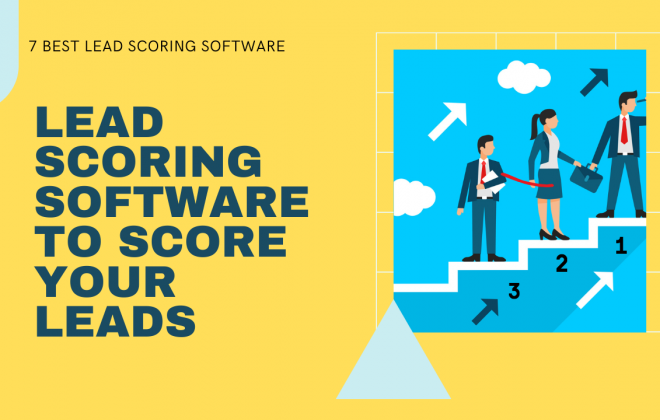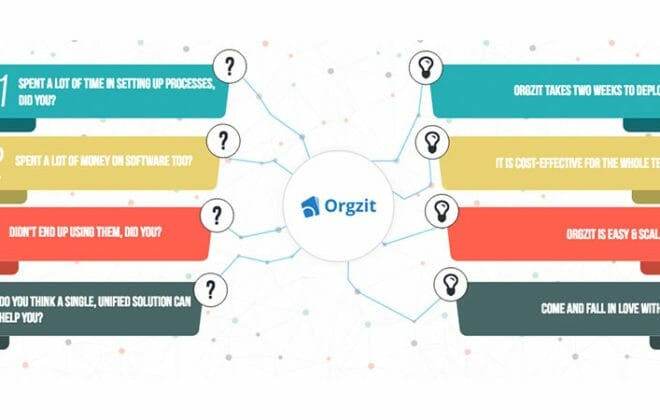Quick Guide to Digital Transformation for B2B Business
Digital transformation is inevitable and crucial in todays changing business landscape. Its impossible to imagine life without a mobile phone, so is imagining B2B businesses without business applications.
Businesses must evolve and adapt digital technology to be at par with other businesses. Before you transform your business digitally, it is important to check whether your company is ready for digital transformation.
Digital readiness is the ability to use technology to your advantage in the business to achieve business goals.
As a business owner or leader, you may need to assess how well your employees are adapted to digital transformations.
- Digital transformation is inevitable in the modern business landscape. The absence of technology can lead to falling behind the competitors.
- Change management can be the biggest hindrance in digital transformation.
- A strategic road map to digital readiness to digital maturity can, with an alignment with teams’ expectations and needs, help in a smooth transition.
- The three simple steps to achieving digital readiness are:- understand each stakeholder’s needs, create a strategic road map, and appoint a digital champion.
- Go through 16-point checklist to assess your company’s digital readiness.
But why do you need digital transformation?
- There are plenty of business applications available to improve your day-to-day work life. Business applications like CRM, Inventory Management, Task Trackers, Resource Planning Platforms etc.
- If you don’t do it, you will lag behind your competition. Post-Corona, almost every business is digital, mostly because many businesses function remotely or in hybrid mode.
- Even if you are not remote, you need to go digital because it makes your life better. Digitalization of manual tasks can save up to 4 hrs of your team’s daily work.
# Remember when you asked for a monthly sales report from your sales manager?
How long did it take for your manager to retrieve data from the system: 3 hours, a day? When you digitize your sales data, you can just click a few times on the screen, and voila! You have weekly, monthly, and quarterly reports in front of you.
Power of data knowledge: You will get data insights in minutes, which is impossible with manual data collation into reports. You can visualize your reports into bar graphs, charts, and pie diagrams to make them more readable and easily comprehended.
# Your customer ratings are going down!
When your customer support team answers a query, it feels like a cold call. Because the customer success guy has no idea who he is talking to and what their problem is. There is no connection between the customer and your support team.
Digitization of data on a business tool like CRM can bridge the gap between your customer and your support team by putting the right information in front of them. While also personalizing the call with the interaction history easily accessible on the platform with the ticket number assigned.
# Have you ever lost any files or data on the computer because of a bug or a virus?
Scattered spreadsheets sometimes get deleted by users or corrupted due to viruses. It is a serious loss of data that is irreplaceable. An intelligent data management platform can store all your data safely on a cloud while helping you utilize it in the most efficient manner.
# What happens if your crucial information gets leaked by a former employee?
Data breach is so easy when you use basic docs and spreadsheets. There is no access control to the data present in the computer. All team members have access to everything. This is a serious issue faced by many company owners.
Digital tools can help you control access to the data that is available based on their roles in the company.
Challenges of Digital Transformation
- Change Management: It’s human nature to get comfortable and nest. Employees tend to get comfortable in the way they have been working. Asking them to change their daily routine is a huge ask. And it cannot be done abruptly. Or your digital project may fail completely.
An abrupt change can only be useful if the employees are struggling to keep up the workflow and are unhappy with the current status.
But business can not function in this way. Especially B2B businesses need to evolve with the market. To get the team digitally ready, it is important to prepare it judiciously.
As a company leader, it is crucial to align your team with the goals you want to achieve for your business.
Once your strategy is clear to your team members, it is important to create a conducive environment for getting your team members to the stage of digital readiness.
Three simple steps to get your team digitally ready
In today’s fast-paced digital landscape, ensuring your team is digitally ready is essential for success. Here are three simple steps to help you achieve this:
- Understand What the Stakeholders/Users Want: The first step in preparing your team for the digital age is to understand your stakeholders’ and users’ needs and expectations. Do this by conducting internal surveys, interviews, and feedback sessions to gain insights into their requirements. Your teams are the user hence, keeping their expectations and needs in focus can really reduce your work to half in change management.
- Create a Roadmap for Your Digital Journey: Once you’ve gathered insights, it’s important to create a strategic roadmap. Define your goals, objectives, and key performance indicators (KPIs). This roadmap will guide your team through the digital transformation process, providing a clear vision of where you are heading and how to get there.
- Assign a Digital Champion: To ensure the success of your digital initiatives, appoint a digital champion within your organization. This individual will drive the digital transformation, coordinate efforts, and foster a digital-first culture. Their expertise and leadership will be instrumental in achieving your digital readiness goals.


16 Point Checklist for Digital Readiness Review
Use this checklist to assess your company and team’s digital readiness:
✔ You have a clear vision for your digital requirements for next three years.
✔ To take your team from digital awareness to digital maturity you’ve formulated a roadmap for the digital transformation of your teams.
✔ Your manager or executive understands the potential of digital technology and how it can support the company.
✔ Your organization can effectively implement a digital transformation strategy, even without digital leadership.
✔ A culture of innovation prevails within the company.
✔ Those who use creative problem-solving approaches are duly recognized and rewarded.
✔ Failures are not met with discouragement but are viewed as opportunities for learning and improvement.
✔ The organization actively encourages fresh perspectives and innovative thinking.
✔ There’s a growing trend of using applications to enhance day-to-day work processes.
✔ The adoption of software for various operational aspects is rising within your company.
✔ Your team includes members who possess digital skills and expertise.
✔ Technical talent is readily available within the company.
✔ Ongoing assessments and evaluations of employees’ knowledge in digital transformation are being made.
✔ The ability to implement digital strategies remains unaffected even in the absence of specific digital skills.
✔ Managers and team members are aligned with the company’s digital objectives.
✔ Over the past three years, there has been an increased investment in novel forms of software.









